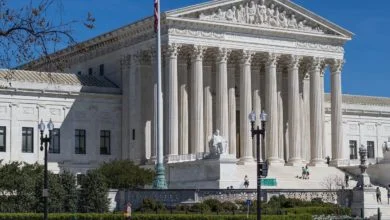Facts on Gun-related Death in America
Last week, there was another mass shooting — this one on the campus of Michigan State University. A gunman armed with two handguns randomly shot at people inside a classroom and later at the student union. Three students died in the attacks, and five were seriously wounded. Thanks to video footage and contemporaneous reports provided by witnesses, the killer was apprehended walking home from campus. He killed himself before he could be taken into custody by police.
Every mass shooting traumatizes not only the affected community but the country as a whole, and prompts a rash of articles calling for “sensible gun control” — by which many such advocates mean the complete inability of average citizens to purchase weapons. But information about gun-related deaths in the United States is rarely presented dispassionately — or even accurately. If it were, our national conversations about gun violence would have a very different focus.
To put things in perspective, there are nearly 400 million privately owned firearms in the United States. According to polling done by Pew Research, approximately 40% of U.S. households have at least one gun owner. White males have the highest rates of gun ownership. And nearly half of all gun owners live in rural areas of the U.S.
Given those statistics and the perpetual media attention given to “assault weapons,” one would expect those demographics and those particular firearms to be responsible for a large number, if not the majority, of gun-related deaths in this country.
But the data show a different picture.
We’ll use 2021 as an example. According to the National Safety Council, there were 48,830 gun-related deaths in 2021. One astonishing and tragic fact is that more than half of those deaths — 54% — were suicides. (That, sadly, is consistently true from year to year.) 21,000 were homicides. A review of publicly available information reveals the following number of gun homicides in some of the country’s largest cities that same year. (In what was a distressing reversal of earlier trends, 2021 was the deadliest year on record for many of these cities):
— 797 in Chicago
— 486 in Philadelphia
— 486 in New York City
— 473 in Houston
— 392 in Los Angeles
— 337 in Baltimore
— 309 in Detroit
— 306 in Memphis
— 271 in Indianapolis
— 227 in Washington, D.C.
— 212 in Dallas
— 202 in Miami
— 198 in Phoenix
— 195 in Milwaukee
— 179 in Cleveland
— 159 in Atlanta
— 133 in Oakland
— 126 in San Antonio
— 108 in Ft. Worth
— 88 in Austin
— 55 in San Diego
Those cities alone represent more than a quarter of all gun-related homicides in the country. Urban violence is a grave problem across the nation. And minorities residing in those cities are disproportionately represented in the data, both as perpetrators and as victims.
The Black Lives Matter movement has drawn long-overdue attention to racial disparities in police brutality. But the numbers of victims killed by police are dwarfed every year by the numbers of lives lost to gun violence. According to the Crime Data Explorer website maintained by the FBI, of the almost 15,000 instances of homicide that were reported to the Bureau in 2021, 52.5% of the perpetrators were black or African American, and almost 60% of the victims were black or African American as well. In our major cities, the overwhelming majority of gun violence is black-on-black.
Almost 80% of the perpetrators and their victims were male.
Most perpetrators are young as well: 69% of those who committed gun homicides were under 40 years old; almost 15% of gun homicides were committed by teenagers.
Although mass shootings by random attackers galvanize public opinion and produce calls to ban “assault weapons,” the U.S. Department of Justice and FBI reports show that most gun crimes — including multiple homicides — are committed with handguns, not shotguns or rifles. Handguns accounted for almost 60% of all gun-related homicides reported to the FBI in 2020; rifles, only 3% and shotguns only 1%.
The vast majority of law-abiding gun owners in the U.S. never commit any crimes with the weapons they own, regardless of the type. A 2016 study conducted by researchers at the University of Pittsburgh showed that only 18% of crimes were committed by someone lawfully in possession of a gun. And even in many of the “lawful” possession cases — including the mass shootings at MSU, Marjory Stoneman Douglas High School in Parkland, Florida, and the Aurora, Colorado, movie theater — the gunmen had criminal records or a history of serious mental illness that should have precluded purchasing a firearm.
Serious efforts to preventing gun violence must start with a focus on the populations that are most likely to be victimized by gun violence, as well as those who perpetrate it, and policies should be shaped accordingly. That includes people with violent criminal records and those with a history of serious mental illness. Banning so-called assault weapons is pure political theater that will deprive law-abiding American citizens of their Second Amendment rights, while doing nothing to deter wrongdoers or protect the most common victims.
Agree/Disagree with the author(s)? Let them know in the comments below and be heard by 10’s of thousands of CDN readers each day!




